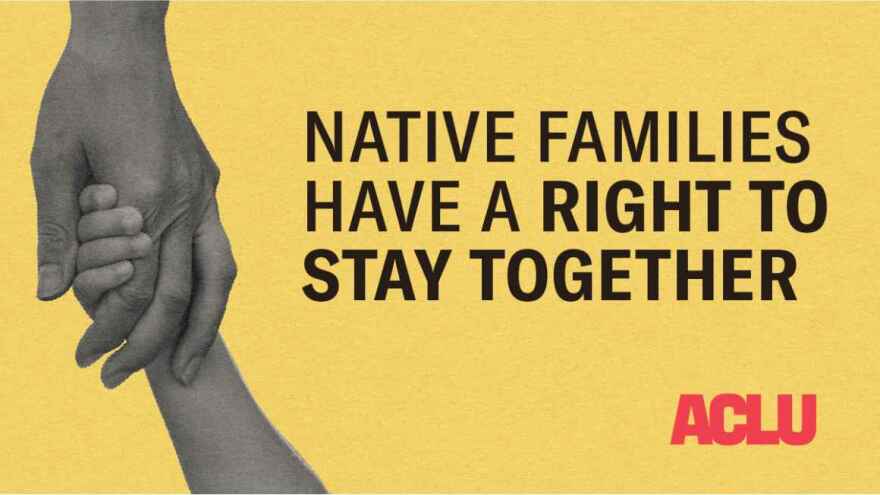On Wednesday, Nov. 9, the U.S. Supreme Court will hear oral arguments regarding the Indian Child Welfare Act (ICWA). ICWA was passed as a direct response to the forced assimilation policies of the federal government. As a result, many Indian children lost connection to their culture because of boarding schools as well as a high number were removed from their families and put into non-Indian homes.
The federal case is asking if race should be considered when placing an Indian child in a new home. But the law isn’t written with race in mind, it’s written to benefit children who are members of a tribal nation, and to involve tribes in the placement of those children.
Stephanie Amiotte (Oglala Lakota Sioux), legal director of the American Civil Liberties Union in the Dakotas and in Wyoming, said because Indian tribes are political nations, if ICWA was overturned it would have lasting consequences.
“It would cast doubt on Congress's ability to negotiate and to deal with tribes as guaranteed by the Constitution,” said Amiotte. “And it would just have a tremendous impact upon the entire body of Indian law in the United States.”
Defenders of ICWA say that race and tribal affiliation are different things, and if overturned the federal court will complicate decades of already established Indian law and will weaken tribal sovereignty.
Amiotte said ICWA is meant to mend the cultural ties broken by forced assimilation efforts of the federal government like Indian boarding schools.
“There were atrocities that occurred in the federally funded and federally mandated boarding schools, oftentimes, which are operated by Catholic churches, other religious sects,” Amiotte said.
The Department of the Interior released a report earlier this year outlining around 50 boarding school graveyards, and identifying around 400 federally supported schools where Indian children were meant to assimilate into U.S. culture.
In Wyoming, during a tribal committee meeting in Oct. in Laramie, a draft bill was passed by the committee to start a working group to get a state ICWA law enacted. A preventive measure in case the federal law is struck down in Spring of 2023.









